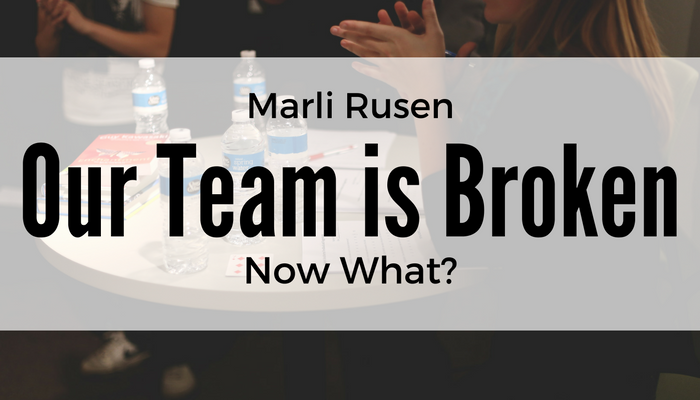Resources > Blog > Our Team is Broken: Now What?

Teams do not “break down” overnight. Often, the breakdown is the result of day-to-day disrespect and dysfunction that has gone unreported or unchecked for a number of months or years. Then – the “final straw” happens – a formal complaint is filed, a former or current staff member “goes public” or an integral member of the team suddenly departs. At that point, the longstanding and deeply-embedded toxicity “suddenly” shows up on the radar of senior leaders, external stakeholders or the public at large.
At this point, many organizations panic, and rightly so. The potential and actual costs of unchecked disrespect – amongst teams, amongst leaders, or between leaders and their teams – are enormous. They include the financial costs associated with sick leave, turnover and litigation. They also include the human costs associated with the day-to-day anxiety of “having to work with so and so” or irreparably damaged relationships that will never be what they once were or the unwelcomed departure of highly valued, well-liked colleagues who exit the organization to avoid the ongoing drama and trauma.
While panic is understandable, making hasty, reactive and indefensible decisions in the face of such panic is not. All too often, in an effort to demonstrate that they have “taken action”, certain organizations rush to point fingers at specific individuals in the absence of an objective investigation or fair inquiry: this “scapegoating” or “throwing people under the bus” is happening in epidemic proportions these days.
As a workplace arbitrator and investigator, I am a firm believer in holding individuals accountable for their role in creating or sustaining a disrespectful workplace. However, action should only be taken after an objective review has been conducted.
Some workplaces avoid accountability altogether and instead focus only on “moving forward”, often by facilitating an expedited team building session on “working as one”, “from me to we” (or some other similar topic).
Don’t get me wrong – as a workplace mediator and consultant, I am deeply committed to working with teams to rebuild and restore trust in and communication with each other. However, when any team (at any level of the organization) is deeply fractured, and there is fear, mistrust and poor communication, the last thing they want or need is a generalized “team building” workshop.
There is a time and a place for everything. When team breakdowns occur, people don’t want to see scapegoating or participate in team building sessions. What they want, need and deserve is to be genuinely heard and understood by those charged with the responsibility of resolving the situation.
This right to be heard is fundamental to any workplace that is genuinely striving to be – and remain – a respectful, productive and engaging environment. It is a right that is attached not only to those who bring forward their accusations of disrespect but also to those who face such accusations.
So … when the breakdown happens and the team needs help, please don’t hit the panic button and make things worse. Instead, hit the pause button. Then, stop, look and listen with compassionate neutrality – to the leaders, to the team members and to everyone and anyone else involved. Without question, listening is the most respectful first step to take in the rebuilding of a broken team.
– Marli Rusen
